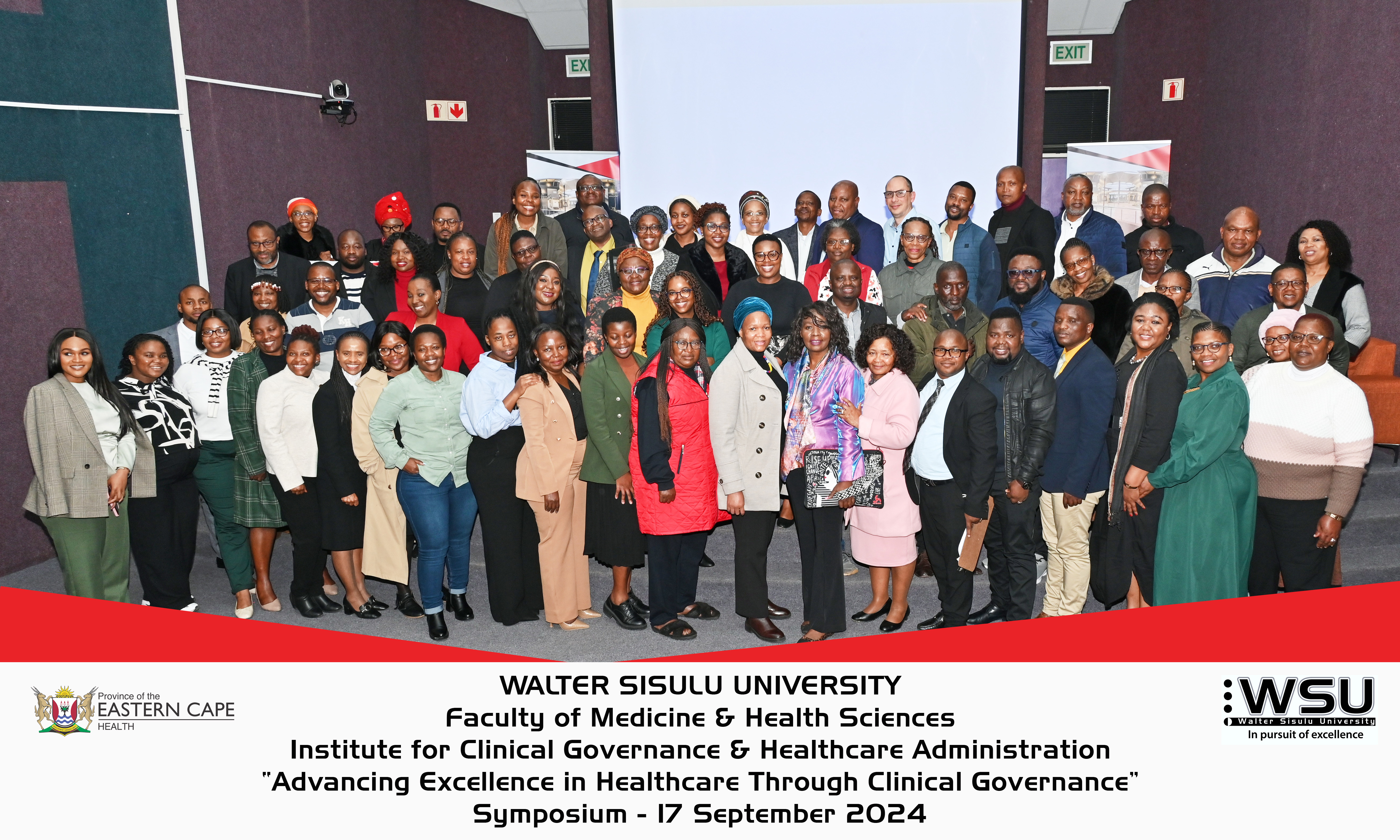A NEW ERA OF HEALTHCARE SOLUTIONS FROM WSU PUBLIC HEALTH

The Department of Public Health in the Faculty of Medicine and Health Sciences took centre stage this October as it spearheaded the “Public Health October” initiative, marking a new direction in its efforts to strengthen community health, advance public health education, and address pressing healthcare challenges of the Eastern Cape.
The three key drivers of the department’s transformation initiative emphasised the shared vision of the University and the Eastern Cape Department of Health (ECDoH) to create a meaningful impact, promote wellness, and improve lives through multi-stakeholder partnerships.
“The new public health programme aims to strengthen health systems responsive to community needs and improve disease prevention and education. It will promote healthy lifestyle changes, foster social collaborations, and engage communities for more sustainable health outcomes’” said Head of Department, Dr Sibusiso Nomatshila.
In the wake of the initiative, the department set up strategic symposia to address key health issues including cancer awareness, mental health, and non-communicable diseases.
The final symposium focused on uKuthwala, aims to address the intersections of human rights and health by raising awareness about the health impacts of the practice and advocating for women's health and safety.
“This initiative aligns with the faculty's goals by addressing the population's needs within the academic and service health framework and demonstrating a commitment to innovative public health approaches. It emphasises partnership with communities to drive change and collaboration with relevant stakeholders to respond effectively to local, regional, and national development priorities, and international imperatives,” said Nomatshila.
Senior Lecturer in the department, Dr. Vincent Makola, emphasized that this strategic move enables the department to engage directly with communities, gaining invaluable firsthand insights into their healthcare challenges.
Makola asserts that the departments’ initiatives seek to strengthen primary health care (PHC) service platforms to ensure that clinics and Community Healthcare Centres (CHCs) are fit for purpose.
“One of our research areas is to understand what drives this bypassing of PHC services and its impact on healthcare efficiency. Additionally, we are interested in gathering localized data to better understand the specific health challenges within each sub-district of the Eastern Cape,” said Mokola.
He added that while national indicators provide a broad view of health issues such as diabetes, hypertension, and TB, these do not fully reflect the nuances of different regions.
“By identifying the exact epidemiology in various sub-districts, we can work with the Eastern Cape Department of Health to implement targeted interventions that address the unique needs of each community."
Meanwhile, Associate Professor in the department, Sikhumbuzo Mabunda asserts that Public Health has extended its efforts since Covid-19 to play an integral role in proactively scanning for new global health threats and mitigating strategies.
“At the Global stage, we have increased our collaboration efforts with international colleagues. We recently appointed honorary Professors from the University of New South Wales (ranked in the top 20 in the world) and the prestigious George Institute for Global Health in Australia. We continue to strive to be on the “front seat of the table” when major global health issues are being discussed,” said Mabunda.
At the same time, the department's focus on global collaborations is complemented by its commitment to local impact.
“With the recent passage of the National Health Insurance Act, South Africa has taken a significant step toward achieving universal health coverage, and WSU is poised to contribute by leveraging lessons from countries with established systems to help the government build a sustainable healthcare model.”
He added, “WSU must actively engage in global conversations on critical issues like climate change, violence, injuries, health system resilience, non-communicable diseases, and infectious diseases, ensuring that South Africa's health policies align with international trends and challenges."
By Ongezwa Sigodi
